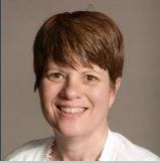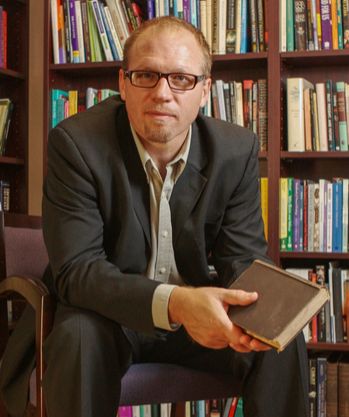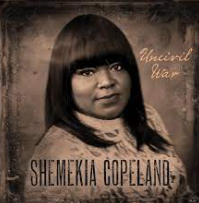Greetings WesleyNexus Colleagues:
For a week or so, and into December, we all have been sending and receiving good wishes of gratitude and sharing our blessings in this season of giving. That is entirely appropriate since most of us take for granted our privilege and well being for most of the year. As we take a few days during the recent holiday to review our philanthropic commitments for the year, those of us on the WesNex Board invite you to join us in supporting the mission outlined by the founders of WesleyNexus more than ten years ago: promoting a strong engagement of people in the Wesleyan tradition at the nexus of the science and religion dialogue.
A charitable contribution is a donation or gift to, or for the use of, a qualified organization. It is voluntary and is made without getting, or expecting to get, anything of equal value. Qualified organizations include nonprofit groups that are religious, educational, scientific, or literary in purpose, WesleyNexus is such a qualified organization. Our EIN # is 27-1087193.
WesleyNexus is, and has been from the beginning, a volunteer organization. We have no dues or membership fees, and we rely exclusively on donations from committed persons and some churches who see merit in our educational efforts and dialogues. Think about it: without WesleyNexus, what would be the organizational framework within which you would address the “big questions of life” at the nexus of science and religion? Be honest about that.
Many persons do not realize that the IRS now provides a deduction for persons who do not itemize their Form 1040 tax return. This deduction is limited to $300 total for a single taxpayer or a married couple filing jointly (or $150 if married and filing separately). For a non-itemizer, the donation to an approved charitable entity (such as WesleyNexus) must be made in cash or check (if you still have such a thing). Just send it to our Treasurer, Richard Barr, at our legal address: Rick Barr Treasurer, 24500 Fossen Road, Damascus, MD 20872.
There are many other ways in which you can show support by making a gift to WesleyNexus. The easiest way, of course, is to go to our website – www.WESNEX.org – where the donate button is just waiting for you to click it open and use a credit card or PayPal. All gifts to WesleyNexus will be acknowledged at year’s end.
If you have benefited from the booming stock marker, now is the time for “pay back.” Rick would love to see a direct transfer of stocks into our coffers. To do that, be sure and give Rick a phone call first,
cell: 301-221-5280. We can give you specific instructions because when stocks are transferred from your broker, the name of the donor (you) does not appear in the transaction. Without it we have no idea who is making the gift – so we need to know ahead of time what you are doing, and then we can also send you the official acknowledgment.
Perhaps the best alternative for us older folks is to make a Qualified Charitable Distribution (QCD) from your IRA account. Anyone over the age of 70 1/2 years is required to take a minimum withdrawal each year approximating 5% of the IRA gross. When you don’t need the money, you can meet that requirement with a QCD and not have to pay any tax on the withdrawal. It is a great way to meet your philanthropic commitment, but it takes a few days or a week for the broker to complete that transaction, so you must do it now and not wait until after Christmas. It must be completed by December 31, 2021.
If you need any information or assistance (not legal advice) with these transactions and other gifting options, please call Rick or Maynard at the numbers below. A charitable gift is the best way to overcome the doldrums of the bad news that floods the daily news cycle – and we would be delighted to help make you feel happy before the end of the year.
Best wishes:
Rick Barr Maynard Moore
Sec’y-Treasurer President
301-221-5280 301-229-08288
****************************************************************************************************
Upcoming Events
IRAS Webinar: The Call to Conserve is Not Working with Dr. Philip Clayton
The program will begin at 4:00 PM CDT, 5:00 EDT, 2:00 PM PDT, 10:00 PM BST.
Presentation Overview:
The day when 100,000 people marched in the streets of Glasgow, desperately trying to motivate political commitments by COP26 delegates, the results from a global survey were announced: To put it simply, most of those surveyed agreed that humanity stands at a critical crossroads; at the same time, most admitted that they were not prepared to change their actions or voting behaviors in response. Climate scientists provide data and models; technologists look for clean energy solutions and carbon sequestration; an increasing number of business and political leaders use their power to support the transition. What can IRAS members and allies contribute? In this presentation we will hear that people with the commitments and skill sets of most IRAS members can make four kinds of contributions that could play a crucial role in supporting a transition to an ecological civilization:
Reforming religion
Mediating metaphysics
Promoting a compelling ethic
Engaging activist intellectuals
About the December 14 presenter:
Dr. Philip Clayton is President of the Institute for Ecological Civilization. As a visionary thinker Philip leads EcoCiv in expanding and deepening its mission at the intersections of environment and humanity. With his experience as researcher and Ingraham Professor (at CST at Willamette University in Salem, Oregon), Philip is involved in the conceptual development of all EcoCiv’s projects and ensures mission fit. In particular, he helps project leaders think about intersectional societal changes relevant for their particular projects. Philip holds the PhD from Yale University; has held guest professorships at Harvard, University of Cambridge, and University of Munich. He is the author of some 300 articles on science, ethics, and religion, and author or editor of several dozen books, including God and Contemporary Science (1998), The Problem of God in Modern Thought (2000); Mind and Emergence: From Quantum to Consciousness (2004); Adventures in the Spirit: God, World, Divine Action (2008); Transforming Christian Theology: For Church and Society (2012); and co-author What is Ecological Civilization? Crisis, Hope, and the Future of the Planet (2019). He is also the editor of The Oxford Handbook of Religion and Science (2006) and has three additional books in current preparation.
The IRAS webinar is FREE but registration is required:
https://us02web.zoom.us/webinar/register/WN_TA–9GJ2R0m4gfC9P8kidw
****************************************************************************************************
Meditations on Light by Rev. Dr. Dawn L. Stewart

One of the things I love to do as a pastor with a math and science background is play around with notions of math and science in theology. When we learn about science, we learn that sometimes darkness is the absence of light. But a black hole, which appears black to us, captures all light. Most of the dark we experience as human beings is only partial darkness. We learn that things appear black when they absorb most light and things appear white when they refract all light and this depends on the property of the material.
So let us contemplate these words of scripture and consider some reflection questions as we play with these notions of light, dark, whiteness, blackness, and Christ?
In the beginning was the Word, and the Word was with God, and the Word was God. He was with God in the beginning. Through him all things were made; without him nothing was made that has been made. In him was life, and that life was the light of all mankind. The light shines in the darkness, and the darkness has not overcome it. There was a man sent from God whose name was John. He came as a witness to testify concerning that light, so that through him all might believe. He himself was not the light; he came only as a witness to the light. The true light that gives light to everyone was coming into the world. He was in the world, and though the world was made through him, the world did not recognize him. John 1:1-10
“You are the light of the world. A town built on a hill cannot be hidden. Neither do people light a lamp and put it under a bowl. Instead they put it on its stand, and it gives light to everyone in the house. In the same way, let your light shine before others, that they may see your good deeds and glorify your Father in heaven. Matthew 5:14-16
We know that total darkness is rare and that being in the dark for long periods of time is not good for any human. Science suggests that darkness can do all kinds of things to the human body and brain: It can make us more likely to lie and cheat, make mistakes at work, and even see things we don’t normally see.
How does the light of Christ call ALL of us, of all shades and hues, into wisdom, into life, and into love?
As we think about our struggles with race in this world, we reflect on all the shades of human flesh. No white person is “wholly” white and no black person is “wholly” black, we are a beautiful array of flesh tones. Our brown and black brothers and sisters appear brown and black because the greater levels of melanin in their skin absorb more light. There is a light and life that exists vibrant and beautiful in the black/brown church.
How might we “white” people learn from them and grow in our ability to soak up the light of Christ in us and in our churches?
Then we think of Jesus declaration that we are the light of the world.
How do we learn the deepness of living and loving that sends light out into the world?
Prayer: Divine Light, teach us to be both perfect absorbers of your light of life, love, and wisdom in our world and perfect reflectors of that same light. May we be light in a dark and hurting world. We pray in the name and for the sake of Christ, our eternal Light. Amen.
Rev. Dr. Dawn Stewart is an ordained elder in the United Methodist Church and is pastor at Covenant UMC. As a pastor, she is passionate about developing spaces for authentic spiritual journeys, exploring the connections between art, faith, and science, and working for justice in our world. Dawn retired from the United States Air Force as a Lieutenant Colonel in 2006 where she served in a variety of roles including weather officer, Associate Professor of Mathematics at the United States Air Force Academy, and project manager. She has a Master of Divinity from Wesley Theological Seminary and a Ph.D. in Mathematics from Virginia Tech. Her hobbies include gardening, designing and creating stained glass pieces, and enjoying time with her family. She is also a current member of the WesleyNexus Board of Directors.
****************************************************************************************************
I Need a Love Framework by Thomas Jay Oord

A love-based view of reality can make an enormous difference to how you and I live. If love is the greatest, the ultimate, the highest aim of God and existence, we ought to embrace theologies that make sense of that preeminence.
http://thomasjayoord.com/index.php/blog/archives/i-need-a-love-framework
and Tom’s most recent blog:
Augustine’s God Doesn’t Love Us
I’m writing a book I’m tentatively calling, “Pluriform Love.” Part of the task involves looking at major theologies of love in Christian history. I’m looking at Augustine’s thoughts and criticizing them harshly.
http://thomasjayoord.com/index.php/blog/archives/augustines-god-doesnt-love-us
Note: Tom is on the WesleyNexus Advisory Board
****************************************************************************************************
Advent as Ending: Apocalypse as Good News by David Weiss
Our capacity to make the changes needed in our lives may well hinge on our ability to imagine, within the tumult of apocalypse, a whisper of goods news. Not to domesticate its terror, but to taste the very real joy that can yet be had if we choose—in this Advent moment—to turn away (repent) from lives that trade almost entirely in death to prop up a façade of success that is coming quickly to its end.
https://davidrweiss.com/2018/12/15/advent-as-ending-apocalypse-as-good-news/
****************************************************************************************************
Advent is a season of candlelight, reflection, and expectation by Erin Blakemore
Advent is now considered the first season of the liturgical year, the church’s annual cycle of feast days and Scripture readings. Much like their ancestors, modern Christians see it as a season of preparation in honour of Christ. Advent is celebrated on four consecutive Sundays, beginning on the Sunday closest to November 30 and ending on December 24, Christmas Eve.
****************************************************************************************************
Think we’re living through the Apocalypse? So did first-century Christians by Thomas Reese
Apocalyptic writers speak words of warning to the comfortable and words of consolation to the distressed. To the comfortable, they say, “Wake up, he is coming!” To the desolate they say, “Have hope, your salvation is at hand!”
****************************************************************************************************
Did Humans Invent Mathematics, or Is It a Fundamental Part of Existence? by Sam Baron
As the boundary between physics and mathematics blurs, it becomes harder to say which parts of the world are physical and which are mathematical.
****************************************************************************************************
Good News Music!
Walk Until We Ride by Shemekia Copeland (Youtube)

We’re walkin’ for the poor and unemployed
The hopeless and the hungry and those who have no joy
We’re walkin’ for the refugees and those who have no home
For every single livin’ soul who feels all alone
We’re gonna walk
If you ever stumble
Reach out and take my hand
We’re in this life together
Til we reach the promised land
We’re gonna keep on walkin
‘Til our shoes wear out
Until we reach salvation
And you can hear us shout
https://www.youtube.com/watch?v=NXqV39yWWmo
****************************************************************************************************
2 Corinthians 4:16-18 (NRSV)
Do Not Lose Heart
16 So we do not lose heart. Even though our outer nature is wasting away, our inner nature is being renewed day by day. 17 For this slight momentary affliction is preparing us for an eternal weight of glory beyond all measure, 18 because we look not at what can be seen but at what cannot be seen; for what can be seen is temporary, but what cannot be seen is eternal.
